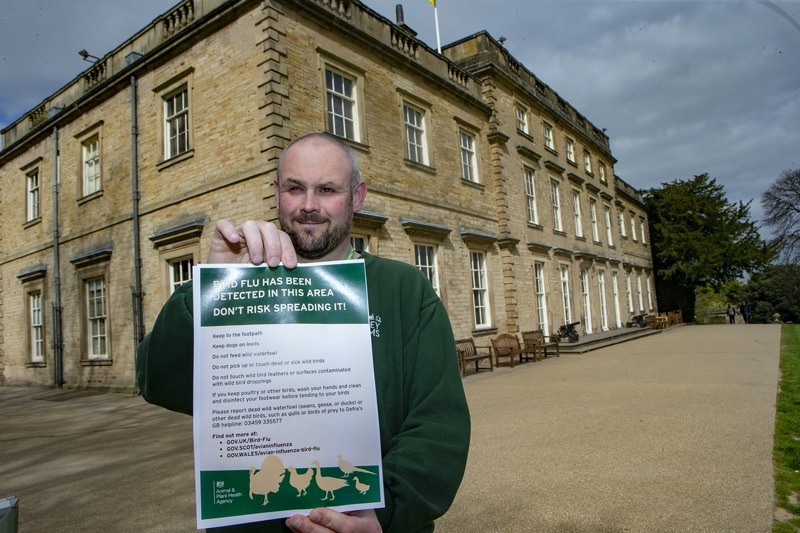VISITORS to a country park have been asked to ‘play their part’ in stopping the ‘worst ever’ spread of bird flu after a case was identified in Barnsley.
The government confirmed 96 cases of ‘highly pathogenic avian influenza’ have been recorded in England so far - with one confirmed near to Cannon Hall Museum, Park and Gardens at Cawthorne in recent weeks.
Though bird flu is a seasonal disease, the current outbreak is believed to be the ‘worst ever’.
While the risk to human health is low, signs have been put up around the site to inform visitors of the disease and how to prevent encouraging the spread.
Despite the high number of cases, earlier this week the UK chief veterinary officers announced that the mandatory housing measures for poultry and captive birds will be lifted across the UK from Monday.
The measures were introduced across the country to help stop the spread, but the ‘avian influenza prevention zones’ will remain in force across the UK until further notice.
Since November, the prevention zone has been in place across the country - which requires bird keepers to house or net poultry and captive birds, disinfect clothing and equipment, and reduce contamination of products, people or vehicles.
Lynn Dunning, the head of Barnsley Museums, said: “Information around avian influenza was displayed in Cannon Hall Museum, Park and Gardens as a result of one case being identified in the area.
“Avian influenza is primarily a disease of birds and there has currently been 96 cases confirmed in the UK.
“National public health advice remains that the risk to human health is very low and poses a very low safety risk, however it does pose a threat to wild birds and the measures in place at Cannon Hall Museum, Park and Gardens are focused on minimising transmission.
“Following government protocol the signage in place - which will remain on display until guidance changes - asks visitors to play their part in helping to stop the spread in order to protect wildlife in the area.
“We ask that visitors adhere to the temporary measures in place, specifically around feeding birds, ducks, geese and swans, to assist our efforts.”
A spokesperson for Barnsley Council added: “While it poses very little risk to humans, please don’t pick up or touch visibly sick or dead birds that you find - including swans, geese and ducks.
“If you see a dead waterfowl or other wild birds like gulls or birds of prey, you should report them to the Department for Environment, Food and Rural Affairs (DEFRA) helpline by calling 03459 335577.
“Please take extra care when visiting green spaces with wild birds, avoiding feeding waterfowl and not touching their feathers.”



























